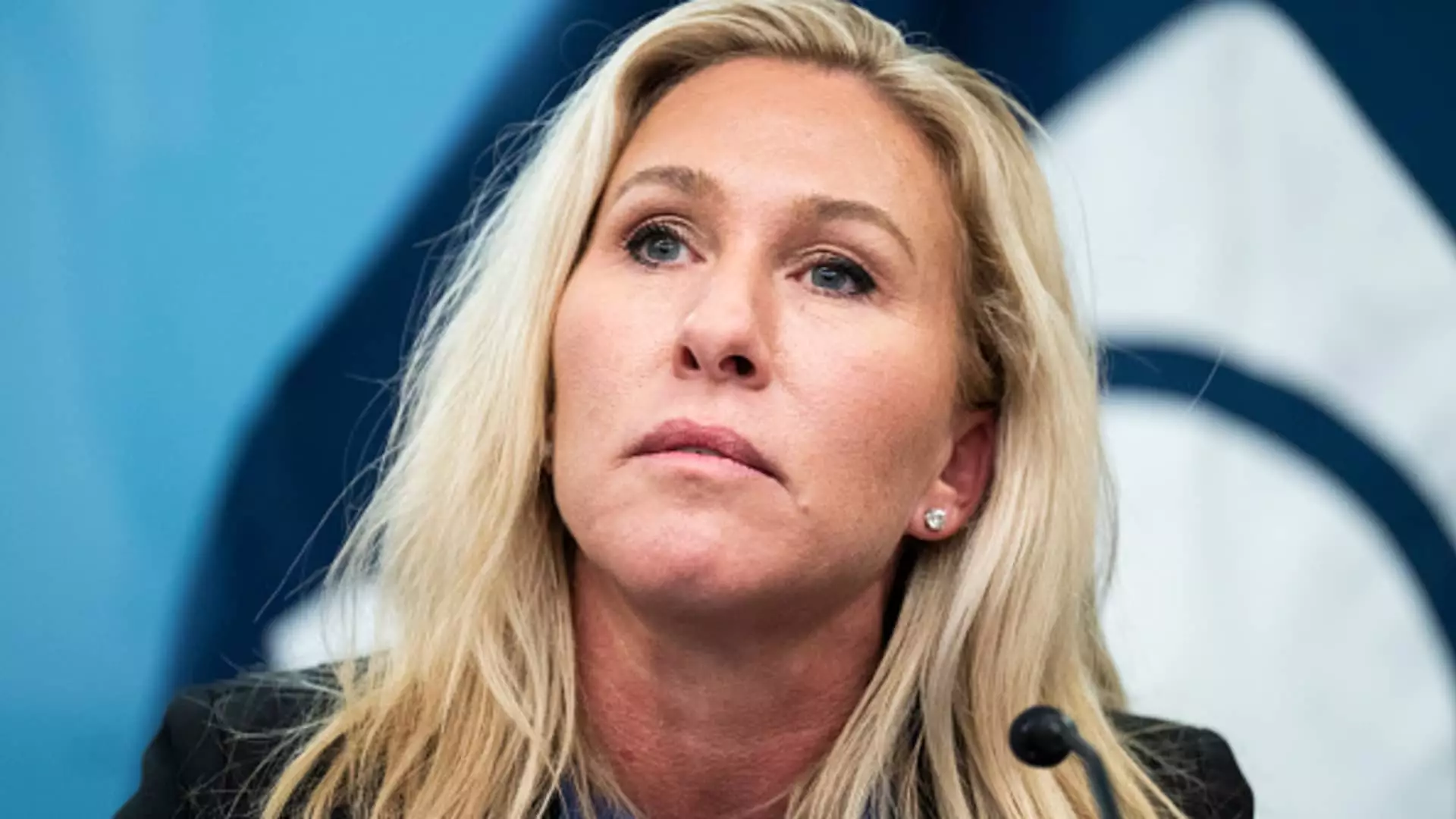In a surprising move that underscores current dynamics within the U.S. government, Rep. Marjorie Taylor Greene, a controversial figure within the Republican Party, has been appointed to lead a pioneering subcommittee aimed at increasing efficiency across federal agencies. This subcommittee will collaborate with a private initiative dubbed the Department of Government Efficiency (DOGE), spearheaded by some of the country’s most talked-about figures, including tech mogul Elon Musk and entrepreneur Vivek Ramaswamy. While the intersection of government and private enterprise is not new, the high-profile nature of the individuals involved desperately beckons scrutiny.
The newly established Subcommittee on Delivering on Government Efficiency — cleverly mirroring the DOGE acronym associated with Trump and Musk’s initiative — manifests a clear intent to identify and dismantle inefficiencies within federal frameworks. Greene’s assertion that this initiative will expose federal waste and bureaucratic inefficiencies is ambitious at best. It seeks to resonate with segments of the American public that are frustrated with government inefficiency, yet the effectiveness of such a committee, led by someone with Greene’s polarizing reputation, is questionable.
In a statement reflecting her enthusiasm, Greene proclaimed, “No topic will be off the table.” This bold commitment seems designed to evoke a transparent atmosphere, yet it also raises concerns about the potential exploitation of the subcommittee for political ends rather than a genuine pursuit of efficiency.
Greene’s collaboration with figures like Musk and Ramaswamy positions this subcommittee at a crossroads of innovative government policy and capitalist interests. Both Musk and Ramaswamy are known not only for their business endeavors but also for their media presence and controversial opinions. Their involvement suggests a potential blurring of lines between public governance and private interests, possibly leading to an environment where corporate agendas overshadow the public good.
The conversation surrounding government efficiency is valid and necessary, especially in an age where technological advancements offer new ways to streamline processes. However, the participation of private billionaires raises ethical questions about accountability and the fundamental role of government. Are these initiatives truly aimed at the betterment of the public sector, or do they serve to escalate the influence of wealthy individuals in democratic processes?
Public response to Greene’s appointment and the formation of the DOGE subcommittee has been predictably polarized. Some view it as a refreshing change aimed at invigorating a stagnant bureaucracy, while others see it as a dangerous mingling of corporate interests and political power. Critics point to Greene’s tumultuous past, including her previous suspension from committee assignments due to controversial remarks and conspiracy theories, as evidence that she may not be the ideal leader for a project predicated on advancing efficiency and transparency.
Moreover, concerns regarding the efficacy of such a subcommittee are amplified by Greene’s previous rhetoric regarding government operations. Her promise to trim the ranks of government “bureaucrats” sounds more like populist cheerleading than a strategic plan grounded in constructive policy-making.
The subcommittee is poised to make recommendations aimed at restructuring and potentially downsizing segments of the government. However, it remains crucial to consider who will be affected by these changes and whether they are genuinely in the best interest of the electorate. The task requires not just the uncovering of inefficiencies, but also a nuanced understanding of how proposed changes affect existing systems and the American populace.
The establishment of the Subcommittee on Delivering on Government Efficiency, under Greene’s administration, has initiated a dialogue on optimizing federal performance. While the motivations behind this initiative may resonate with various constituents, the real challenge lies in the execution and integrity of the intentions, especially in a political environment rife with skepticism and partisan divides. As Greene and her collaborators move forward, the eyes of the public will undoubtedly be upon them, scrutinizing the impact of their actions on the fabric of American governance.


Leave a Reply